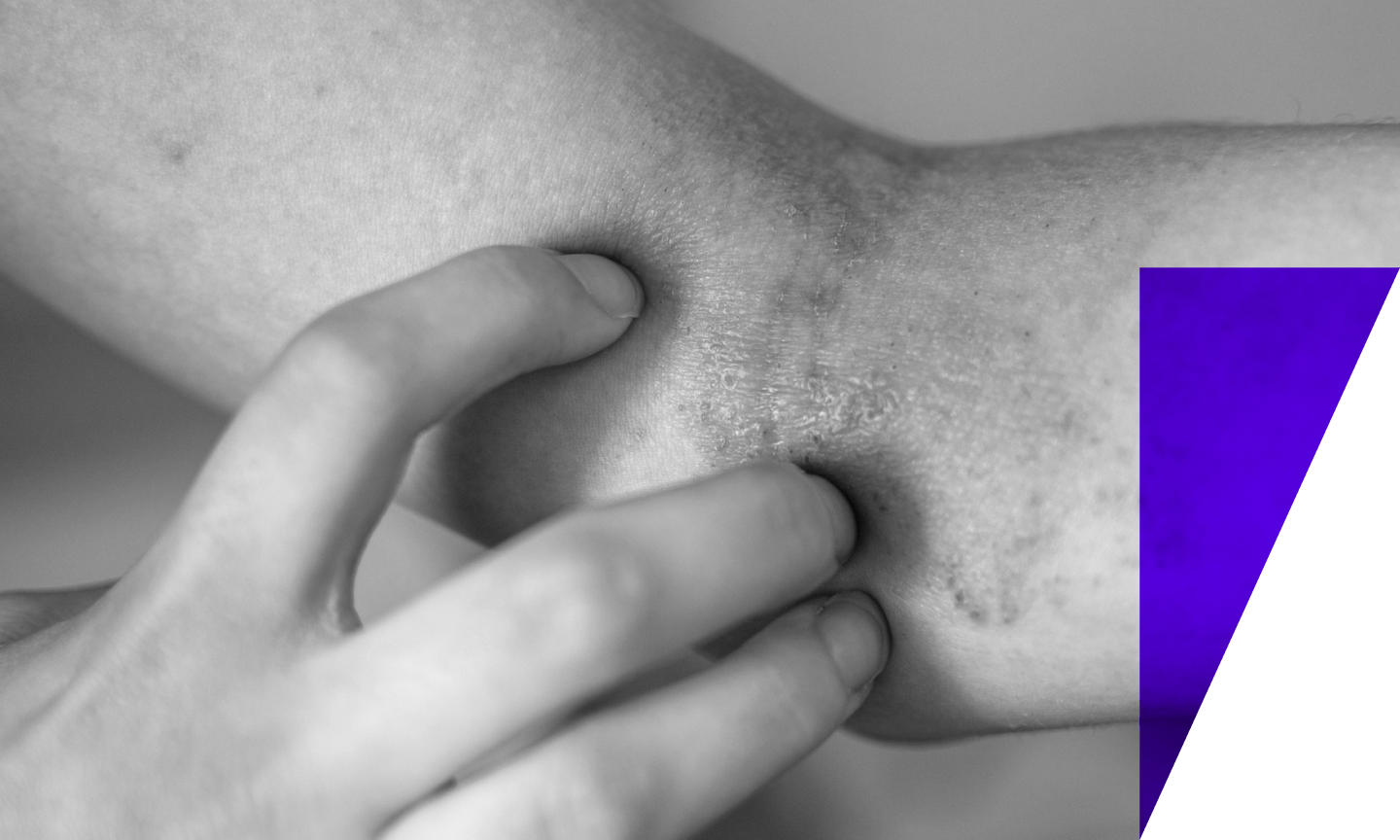Medically reviewed by Susan Bard, MD.
Let's not sugarcoat it: Winter weather can be rough, especially if you have eczema. The combination of cold outdoor air, dry indoor heating, and lower humidity levels creates the perfect storm for irritated, uncomfortable skin. If you’ve noticed your eczema is harder to manage when the temperature drops, you’re not imagining it — winter weather actually does have an impact.
While you can’t exactly avoid winter altogether — unless you’re ready to pack up and become a snowbird (which, fair) — there are a few ways to make it easier on your skin.
1. Think beyond a basic moisturizer
Moisturizing is a non-negotiable for eczema management, but what worked in July probably isn’t going to cut it in January; cold weather demands a more intensive approach.
Thick, oil-based moisturizers are your best bet during cold weather months because they create a protective layer on your skin that prevents moisture from evaporating. Creams and ointments with petroleum jelly might feel heavier or greasier than what you're used to, but that occlusive quality is exactly what your skin needs when the humidity drops. Apply moisturizer strategically: right after bathing (within three minutes while skin is damp), after washing your hands, before going outside in cold weather, and before bed.
2. Address the humidity
Indoor heating might keep you comfortable, but it also sucks the humidity (and moisture) right out of your skin. You can counteract this by running a humidifier in your bedroom while you sleep. If you spend significant time in other rooms, consider additional units for those spaces and aim for indoor humidity between 30–50%. With that said, be mindful of your proximity to heat sources. Sitting right next to a radiator or fireplace exposes your skin to intense, dry heat that can cause irritation and leach moisture from your skin.
3. Adjust your shower temperature and length
Long, hot showers are one of winter's small pleasures. They might feel amazing, but hot water can damage your skin's protective barrier and strip away the natural oils that keep moisture locked in.
Keep water temperature lukewarm and limit showers and baths to 10 minutes or less. Use gentle, fragrance-free cleansers instead of traditional soap, which tends to be alkaline and drying. When you get out, pat your skin dry with a towel. Don't rub, and leave your skin slightly damp before applying moisturizer.
If you prefer baths, adding colloidal oatmeal or bath oils specifically designed for eczema can help soothe irritation. Just make sure you still apply moisturizer right when you get out.
4. Plan ahead for holiday travel
Holiday travel is already stressful without adding eczema flare-ups to the mix. But travel disrupts your routine, exposes you to different environments, and creates conditions where your skin is more likely to act up.
If you're traveling this winter, pack your own fragrance-free cleanser, moisturizer, and any prescription treatments you use. If you're sensitive to laundry detergent, bring your own pillowcase or even a small container of your regular detergent.
Travel is dehydrating (planes especially) so pack more moisturizer than you think you'll need. You'll likely need to apply it more frequently than you do at home.
5. Manage stress intentionally
Winter brings its own specific stressors: packed holiday schedules, financial pressure, and less natural light exposure since colder weather keeps you indoors. All of this can contribute to increased stress levels, which in turn affects your skin. Stress activates inflammatory pathways in your body that can trigger flare-ups or make eczema worse.
Whatever helps you regulate stress — exercise, therapy, meditation, or adequate sleep — is worth prioritizing. Treat it as part of your eczema management plan.
theSkimm
Winter doesn't have to mean months of skin misery. The difference between struggling through the season and managing it successfully comes down to preparation. With some proactive adjustments, you can significantly reduce winter's impact on your eczema.
Live Smarter
Sign up for the Daily Skimm email newsletter. Delivered to your inbox every morning and prepares you for your day in minutes.
